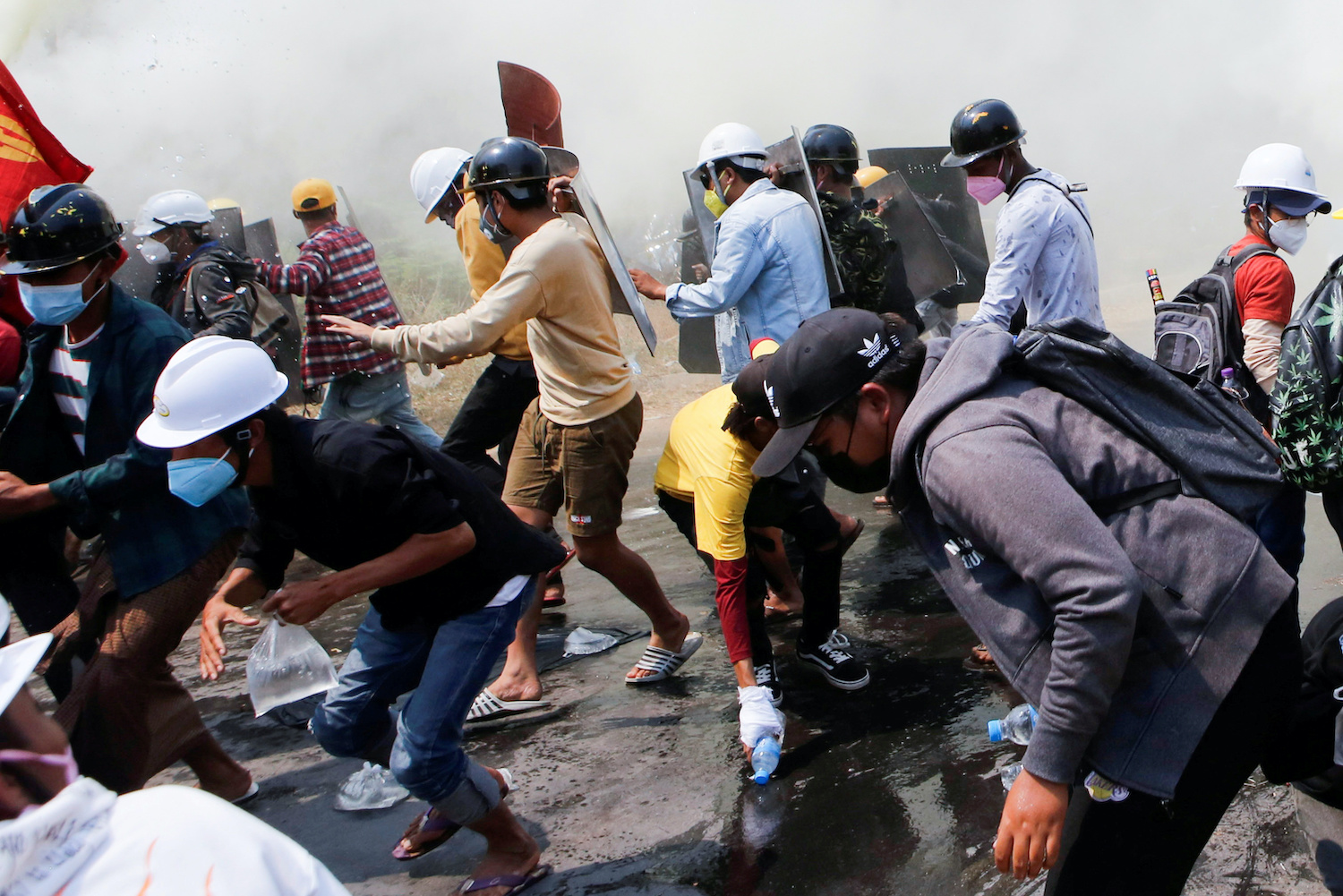(ATF) The United States is planning to impose sanctions on two large conglomerates controlled by Myanmar’s military for the February 1 coup that deposed Aung San Suu Kyi and the deadly crackdown on unarmed civilian protesters, sources have revealed in the US.
The move by the US Treasury to blacklist Myanmar Economic Corporation (MEC) and Myanmar Economic Holdings Ltd (MEHL) and freeze any assets they hold in the United States could come as early as Thursday, sources told Reuters.
The generals staged a takeover on the first day of parliament nearly eight weeks ago, detaining civilian leaders including Nobel laureate Suu Kyi, whose party won elections and the right to a second term in November. The military claimed there was voter fraud but observers said there were no significant irregularities.
The coup has sparked a widespread uprising, and security forces have responded with violence, killing at least 275 people, according to groups monitoring the civil disobedience movement opposing the military takeover.
US President Joe Biden issued an executive order on February 11 paving the way for new sanctions against the Myanmar military and its interests. The order froze about $1 billion in reserves Myanmar’s central bank was holding at the New York Fed, which the junta had attempted to withdraw after seizing power.
The United States and Britain, plus the European Union and Canada, have already imposed some sanctions against the top generals including Commander in Chief Min Aung Hlaing and his two adult children.
But aside from three gemstone companies hit by US sanctions in February and US Commerce Department export blacklisting against the conglomerates, sanctions had until now not targeted the military’s business interests.
The military controls vast swathes of Myanmar’s economy through the holding firms and their subsidiaries, with interests ranging from beer and cigarettes to telecom, tyres, mining and real estate.
Activists have been calling for sanctions to starve the military of revenue, and want governments to go further and hit oil and gas projects that are a major source of revenue to Myanmar.
The White House National Security Council referred inquiries to the Treasury Department, which did not immediately respond to requests for comment.
Some foreign businesses from Japan, Thailand, France and Australia have suspended operations in Myanmar because of the coup and the brutal suppression of public protests.
And a large number of Chinese-owned factories were burnt down earlier this month by unknown attackers, generally believed to be opposed to the military and Beijing’s support for the junta at United Nation forums.
Don’t pay taxes, CRPH urges
Meanwhile, activists are continuing to campaign for major investors – such as France’s Total, Malaysia’s Petronas, South Korea’s Posco and Thailand’s PTTEP – to suspend operations in the country in a bid to pressure the regime to seek a negotiated outcome.
The Committee Representing Pyidaungsu Hluttaw (CRPH), formed by ousted lawmakers from Suu Kyi’s National League for Democracy government, have set up a parallel ‘administration’, which has called for citizens and companies to refuse to pay taxes for the rest of the financial year, which ends on September 30.
The CRPH has urged utility workers to refrain from collecting monthly electricity bills and ordered banks to waive loan repayments for farmers and for international investors to boycott any government bond sales.
Tin Tun Naing, the CRPH’s finance minister, said that expected government revenue for 2021 is 25 trillion kyat (US$17.7 billion), made up largely of taxation and revenue from state enterprises, notably those in the oil and gas industry. But they want to block as much money as possible from going to the military.
The US action, if confirmed this week, would be a further blow to MEHL and MEC. Amnesty International said last year that the military had received dividends totalling up to $18 billion over the years via MEHL.
























